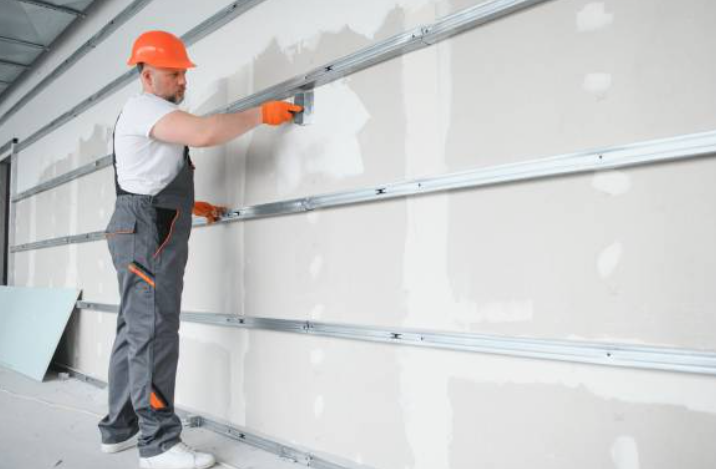
Posted on Sunday, September 29, 2024
As sustainability becomes a major focus in the construction industry, finding ways to reduce environmental impact without compromising on quality is crucial. Roll forming machines have emerged as a key technology that not only boosts production efficiency but also supports sustainable building practices—particularly in dry lining systems. In this blog, we’ll explore how roll forming contributes to sustainability through the use of recyclable materials, minimal waste, and compliance with green building standards like LEED certification.
1. Use of Recyclable Materials
One of the most significant environmental benefits of roll forming machines is their ability to work with recyclable materials like steel and aluminum. These metals are highly sustainable, as they can be recycled multiple times without losing their strength or quality. By using recycled metal in the production of dry lining framing systems, manufacturers can significantly reduce the environmental footprint compared to relying on virgin raw materials.
2. Minimal Waste During Production
Roll forming is known for its precision in manufacturing, which leads to minimal waste compared to other fabrication methods. Roll forming machines are designed to create metal profiles with exact specifications, ensuring that each component fits perfectly into the construction system. This precision reduces scrap material and ensures that only the necessary amount of metal is used.
1. Metal Framing Systems for Dry Lining
In dry lining construction, metal framing systems are widely used for their durability, strength, and lightweight properties. Roll forming machines can produce these systems, including studs, tracks, and channels, with high precision and consistency. These framing systems are ideal for creating environmentally friendly buildings, as they offer excellent structural integrity with minimal material usage.
2. Contributions to LEED Certification and Other Green Building Standards
LEED (Leadership in Energy and Environmental Design) certification is one of the most recognized green building certification programs globally. Roll forming machines can help construction projects earn LEED points in several key areas:
Roll forming machines are a valuable asset to the construction industry, offering both high efficiency and sustainability. Through the use of recyclable materials, minimized production waste, and support for green building standards like LEED certification, roll forming is shaping the future of sustainable construction—especially in dry lining systems. As the demand for eco-friendly building practices grows, roll forming machines will continue to play a pivotal role in reducing the environmental impact of construction projects while maintaining the high-quality standards required by modern building designs.

Used Purlin Roll Forming Machines for Sale Worldwide
Posted on Sunday, January 25, 2026
Pre-Owned Roll Forming Machines for Purlin & Structural Steel Profiles

Used Roof Panel Roll Forming Machines for Sale Worldwide
Posted on Sunday, January 25, 2026
Pre-Owned Roll Forming Machines for Roofing Panel Production

Used Roll Forming Machines for Sale Worldwide
Posted on Tuesday, January 20, 2026
Pre-Owned Roll Forming Machines with Inspection, Verification & Global Support

Steel Coil Supply for Roll Forming Machines Worldwide
Posted on Tuesday, January 20, 2026
Reliable Steel Coil Supply for Roll Forming, Fabrication & Manufacturing Applications
Copyright 2026 © Machine Matcher.